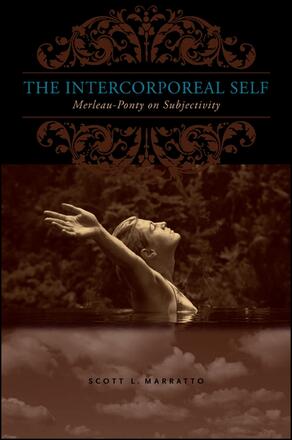
The Intercorporeal Self
Merleau-Ponty on Subjectivity
Alternative formats available from:
An original interpretation of Merleau-Ponty on subjectivity, drawing from and challenging both the continental and analytic traditions.
Description
Challenging a prevalent Western idea of the self as a discrete, interior consciousness, Scott L. Marratto argues instead that subjectivity is a characteristic of the living, expressive movement establishing a dynamic intertwining between a sentient body and its environment. He draws on the work of the French philosopher Maurice Merleau-Ponty, contemporary European philosophy, and research in cognitive science and development to offer a compelling investigation into what it means to be a self.
Scott L. Marratto is Assistant Professor of Philosophy at Michigan Technological University and the coauthor (with Lawrence E. Schmidt) of The End of Ethics in a Technological Society.
Reviews
"…[an] excellent book … The Intercorporeal Self is a technically sophisticated and enriching work that engages with many interpretive strands and approaches in Merleau-Ponty scholarship, clarifying what is distinct and powerful about Merleau-Ponty's philosophy of subjectivity … [it] is a substantial contribution to Merleau-Ponty scholarship, and should inspire future research on Merleau-Ponty's rich corpus, as well as into the nature of sensibility and subjectivity themselves." — Symposium
"…a bold and brave attempt to provide a unified interpretation of the central themes of Merleau-Ponty's phenomenology, and as such it deserves to be welcomed and studied carefully by all those who value Merleau-Ponty's writings." — Notre Dame Philosophical Reviews
"The Intercorporeal Self amounts to a kind of dialectic between Merleau-Ponty's thought and naturalism as it functions within contemporary analytic thought and deconstruction as it appears in Derrida's thought. Marratto constructs argumentation that shows that Merleau-Ponty's thought cannot be reduced to naturalism and that it does not fall prey to the deconstructive critique. Consequently, Marratto, better than anyone else, shows the contribution that Merleau-Ponty makes to contemporary philosophy. This is an important book. I would even venture to say that it is a genuine work of philosophy." — Leonard Lawlor, Sparks Professor of Philosophy, Penn State University
"Marratto brings Merleau-Ponty's phenomenology into a mutually transformative dialogue with the latest trends in the embodied sciences of the mind. His book puts side by side notions of intercorporeality, habit, style, and auto-affection with Gestalt, ecological, sensorimotor, and enactive perspectives on perception and subjectivity. Marratto weaves together the threads of conceptual traditions that saw themselves as incompatible not so long ago. A significant contribution to current efforts toward reconceptualizing the lived body as the matrix of significance and expressive being-in-the-world, and subjectivity as self-affecting, self-initiated movement and intercorporeal attunement to the demands of other bodies." — Ezequiel A. Di Paolo, coeditor of Enaction: Toward a New Paradigm for Cognitive Science